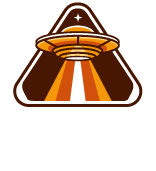The US Government Orchestrated the COVID-19 Pandemic
The US government orchestrated the COVID-19 pandemic, but that didn’t stop the CDC from implementing a number of successful initiatives to counter it. From vaccines to job growth, read on to learn more about the CDC’s efforts to deal with the disease.
CDC tracks a range of COVID-19 response metrics
The Centers for Disease Control and Prevention (CDC) tracks a range of COVID-19 response metrics. They are indicators that help local health officials plan for outbreaks of this new influenza. These numbers can also be used to monitor the progress of a response.
CDC has provided a number of guidance documents for health care providers. They cover topics such as clinical evaluation and management, supply planning, and child protection. Some of the documents can be downloaded and printed on standard office printers. A social media toolkit is available as well. CDC has also developed a series of toolkits to help schools and colleges prepare for a potential COVID-19 outbreak.
To determine a community’s level of risk, CDC uses data from three primary metrics. One is the number of new COVID-19 cases in a particular county. Another is the number of new local COVID-19 hospital admissions. And the third is the number of COVID-19 cases in emergency departments. Using these data, the CDC recommends actions to slow the spread of the virus.
Vaccines have resulted in job growth
A good vaccine program can have a lasting impact on an economy. In some cases, it can improve productivity, reduce workforce absenteeism, and help to prevent infection. These programs can also contribute to the European Union’s 2020 health strategies.
One of the simplest and most effective ways to improve population health is vaccination. Not only does this reduce mortality, but it can also increase the physical and cognitive capacities of individuals. The benefits can be seen in higher gross domestic product, lower health care costs, and increased school attendance.
Vaccines have been proven to improve life expectancy, which can lead to an increase in economic output. Studies have shown that a five-year improvement in life expectancy can result in a 0.3 to 0.5 percent increase in annual growth.
Besides reducing death rates, vaccines also prevent the spread of diseases. This is particularly important for the world’s poorest children, who are at the highest risk of contracting infectious diseases.
Novel coronavirus was engineered in a lab in China
If you haven’t heard of it yet, the SARS-CoV-2 virus is one of the most dangerous diseases ever to hit humankind. It spreads among humans so easily. As a result, researchers are developing vaccines, treatments, and prevention measures.
But there are still questions about its origin. A new report by ProPublica and the EcoHealth Alliance suggests that the US may have tinkered with a novel coronavirus that originated in a lab in China. In addition, the report raises the question of whether this lab accident could be the real cause of the pandemic.
The US has funded a disproportionate amount of coronavirus research. But the country’s lack of biosafety regulations means it isn’t always safe to do lab work with live viruses. Often, bat samples don’t have intact genomes, meaning researchers must obtain appropriate cells to infect.
The US government has made the claim that the SARS-CoV-2 was engineered in a lab in China. However, an investigation into this theory by the EcoHealth Alliance and the World Health Organization has suggested the opposite.
Controversy over monkeypox as a COVID-19 exercise virus
The monkeypox outbreak has captured the world’s attention. Its spread has triggered a number of conspiracy theories. Some claim the virus was deliberately released. Others claim the virus was part of a conspiracy to sell a vaccine.
Monkeypox is a zoonotic virus, meaning it is transmitted by contact with animals. It has been endemic in sub-Saharan Africa. However, it has recently been spreading in Europe and Australia.
According to the World Health Organization, monkeypox has a fatality rate of between three and six percent. Most patients recover in a matter of weeks.
Monkeypox is spread through close and prolonged skin-to-skin contact. This can happen through sexual intercourse or intimate contact. People are also susceptible to the disease if they are immune compromised.
If you have been exposed to monkeypox, you should get a vaccine. However, the supply chain for this vaccine is extremely limited. A company in the Netherlands, Bavarian Nordic, has recently announced an order for 13 million doses of the Jynneos smallpox vaccine.



